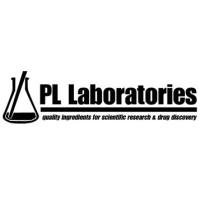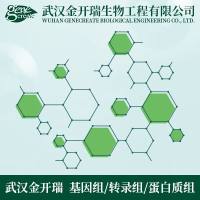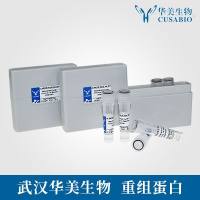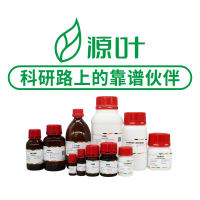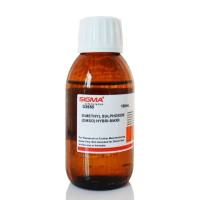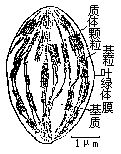拟南芥叶绿体蛋白质组学分析
丁香园
3914
1. 前目
叶绿体是绿色植物组织中一种重要的器官,其主要功能是执行光合作用。除此之外 ,许多重要的化合物也在叶绿体内合成,如植物激素、脂肪酸和油脂、氨基酸、维生素、嘌呤、嘧啶核酸、四吡咯类化合物及类异戊二烯等。叶绿体也是植物细胞内同化氮和硫的场所 [1] 。其内包含有大量的蛋白质结合伴侣、定位元件、辅因子伴侣、组装元件、肽酶及蛋白酶等,对于蛋白质生物合成和胞内平衡具有重要作用。叶绿体内的蛋白质种类多样,包括与质体 DNA 及 mRNA 结合的蛋白质,这些蛋白质对叶绿体内基因的表达具有重要作用 [ 2,3] 。据估计,与不同种类质体结合的蛋白质共计 2000~4000 种。其中约 550 种是含有 α 螺旋的跨膜蛋白或者膜结合蛋白 [4] ,而叶绿体基质则含有多于 1000 种的蛋白质。到目前为止,已经有许多研究对拟南芥类囊体和叶绿体膜蛋白质组进行了详细的探讨 [5~13] 。
本章介绍的叶绿体分离方法主要是基于 David Christopher 博士[14] 以拟南芥为材料所发展出来的一种方法,同时还参考了一些已经发表的从豌豆和菠菜中分离叶绿体的方法 [ 15 ] 。在上述基础上,我们进一步优化了分离方法,并将其用于本实验室大规模的叶绿体分离和蛋白质组分析工作中 [16] 。这种方法没有进行过叶绿体蛋白质输入活性的测试,但是本方法具有产率高,污染低的优点,尤其适合于叶绿体的蛋白质组分析。关于用于体外蛋白质输入活性试验的叶绿体分离方法,可以参考其他的一些报道 [17] 。
2. 材料
( 1 ) 介质 A ( 匀浆缓冲液,见注释 1):50 mmol/L HEPES-KOH ( pH 8.0) 、330 mmol/L 山梨醇、2 mmol/L EDTA -Na2 ( pH 8.0 )、5 mmol/L 抗坏血酸维生素 C 、5 mmol/L 半胱氨酸,0.05% 牛血清白蛋白 (BSA ) (可以忽略以减少对最后所得样品的污染,见注释 1)。
( 2 ) 介质 B ( 清洗溶液):50 mmol/L HEPES-KOH ( pH 8.0) 、330 mmol/L 山梨醇、2 mmol/L EDTA-Na2 ( pH 8. 0)。
( 3 ) 介质 C ( 裂解液):10 mmol/L HEPES-KOH ( pH 8.0) 、5 mmol/L MgCl2、蛋白酶混合抑制剂(表 6-1)。

( 4 ) 100% PF-Percoll:0.8 g PEG 8000、0.27 g Ficoll 400000,加 Percoll 至最终体积为 27.5 ml。
( 5 ) Percoll 梯度:PF Percoll ( 40% 或 85% ) 、0.5 mmol/L EDTA、50 mmol/L HEPES-KOH ( pH 8.0) 、330 mmol/L sorbitol。
( 6 ) 浓缩离心设备(包含 3kDa 过滤器,如 Millipore 公司的 Amicon 3kDa)。
4. 注释
( 1 ) 制备 1 L 介质 A:60.1 g 山梨醇、50 ml 1 mol/L HEPES-KOH 贮存液( pH 8.0) 、4 ml 0.5 mol/L EDTA (灭菌贮存液),加双蒸水至最终体积 1 L。使用前新鲜加入 0.88 g 抗坏血酸维生素 C 、0.6 g 半胱氨酸和 0.5 g BSA ( 可以忽略以降低对最终叶绿体样品的污染)。
( 2 ) —般 40~50 株完全生长的拟南芥植物材料须用 1 L 研磨缓冲液。最佳的比例和研磨时间根据不同的实验室和操作者根据各自的经验确定。
( 3 ) 尼龙布在使用前最好用研磨缓冲液浸湿。
( 4 ) Percoll 非连续密度梯度制备,直接在 85% Percoll 表面慢慢注入 40% Percoll,或者用移液管在 40% Percoll 下面注入 85% Percoll 即可。
( 5 ) 叶绿素浓度测定参照文献 [ 20 ] 进行。将 2~5 μl 叶绿体或类囊体溶液加入 1 ml 80% 冰上预冷的丙酮中,振荡后在暗处于冰上静置 10 min。4°C 条件下 15000 g 离心 5 min。收集绿色上清液部分,测定其在 663.2 nm 及 646.8 nm 处的吸光值。叶绿素 a 浓度 + 叶绿素 b 浓度( μg/ml) = ( 1+v)/v X(7.15X A663.2 + 18.71 X A646.8 ) 。
( 6 ) 也可以直接在 300000 g 条件下离心 25 min,然后收集类囊体和包膜结构。但是在这种离心力下得到的沉淀难以重新悬浮,同时,高离心力可能会导致囊腔和一些外膜蛋白流失到基质蛋白部分。
参考文献
1. Buchanan, B., Gruissem, W., and Jones, R. L., eds. (2000) B io ch em istry a n d M o le c ula r B io lo g y o f P la n ts, American Society of Plant Physiologists, Rockville, MD.
2. Monde, R. A., Schuster, G., and Stern, D. B. (2000) Processing and degradation ofchloroplast mRNA. B io c h im ie 82, 573-582.
3. Barkan, A. and Goldschmidt-Clermont, M. (2000) Participation of nuclear genesin chloroplast gene expression. B io c h im ie 82, 559-572.
4. Sun, Q., Emanuelsson, O., and van Wijk, K. J. (2004) Analysis of curated andpredicted plastid subproteomes of A r a b id o p s is . Subcellular compartmentalizationleads to distinctive proteome properties. P la n t P h ys io l. 135, 723-734.
5. Kleffmann, T., Russenberger, D., Von Zychlinski, A., et al. (2004) TheA r a b id o p s is th a lia n a Chloroplast Proteome Reveals Pathway Abundance andNovel Protein Functions. C u rr. B io l. 14, 354-362.
6. Froehlich, J. E., Wilkerson, C. G., Ray, W. K., et al. (2003) Proteomic study of theA r a b id o p s is th a lia n a chloroplastic envelope membrane utilizing alternatives totraditional two-dimensional electrophoresis. J. P r o te o m e R es. 2, 413-425.
7. Ferro, M., Salvi, D., Brugiere, S., et al. (2003) Proteomics of the chloroplast envelope membranes from A r a b id o p s is th a lia n a . M o l. C ell. P r o te o m ic s 28, 28.
8 . Ferro, M., Salvi, D., Riviere-Rolland, H., et al. (2002) Integral membrane proteins of the chloroplast envelope: Identification and subcellular localization ofnew transporters. P ro c. N a tl. A c a d . S ci. U SA 99, 11,487-11,492.
9 . Ferro, M., Seigneurin-Berny, D., Rolland, N., et al. (2000) Organic solvent extraction as a versatile procedure to identify hydrophobic chloroplast membraneproteins. E le c tr o p h o r e s is 21, 3517-3526.
1 0 . Peltier, J. B., Ytterberg, A. J., Sun, Q., and van Wijk, K. J. (2004) New functionsof the thylakoid membrane proteome of A r a b id o p s is th a lia n a revealed by asimple, fast, and versatile fractionation strategy. J. B io l. C h em . 279, 49,367-49,383.
11. Friso, G., Giacomelli, L., Ytterberg, A. J., et al. (2004) In-depth analysis of thethylakoid membrane proteome of A r a b id o p s is th a lia n a chloroplasts: new proteins,new functions, and a plastid proteome database. P la n t C ell 16, 478-499.
1 2 . Peltier, J. B., Emanuelsson, 0 ., Kalume, D. E., et al. (2002) Central functions ofthe lumenal and peripheral thylakoid proteome of A r a b id o p s is determined byexperimentation and genome-wide prediction. P la n t C e ll 14, 211-236.
13. Schubert, M., Petersson, U. A., Haas, B. J., Funk, C., Schroder, W. P., andKieselbach, T. (2002) Proteome map of the chloroplast lumen of A r a b id o p s isth a lia n a . J. B io l. C h em . 277, 8354-8365.
1 4 . Hoffer, P. H. and Christopher, D. A. (1997) Structure and blue-light-responsivetranscription of a chloroplast psbD promoter from A r a b id o p s is th a lia n a . P la n tP h y s io l. 115, 213-222.
15. Cline, K. (1986) Import of proteins into chloroplasts. Membrane integration of athylakoid precursor protein reconstituted in chloroplast lysates. J. B io l. C h em .261, 14,804-14,810.
16. Peltier, J. B., Ripoll, D. R., Friso, G., et al. (2004) Clp protease complexes fromphotosynthetic and non-photosynthetic plastids and mitochondria of plants, theirpredicted three-dimensional structures, and functional implications. J. B io l. Ch em .279, 4768-4781.
17. Aronsson, H. and Jarvis, P. (2002) A simple method for isolating import-compe-tent A r a b id o p s is chloroplasts. F E B S L e tt. 5 29, 215-220.
1 8. Seigneurin-Berny, D., Rolland, N., Garin, J., and Joyard, J. (1999) Technicaladvance: differential extraction of hydrophobic proteins from chloroplast envelopemembranes: a subcellular-specific proteomic approach to identify rare intrinsicmembrane proteins. P la n t J. 19, 217— 228.
1 9 . Gomez, S. M., Nishio, J. N., Faull, K. F., and Whitelegge, J. P. (2002) The chloroplast grana proteome defined by intact mass measurements from liquid chromatography mass spectrometry. M o l. C ell. P r o te o m ic s 1, 46-59.
20. Lichtenthaler, H. K. (1987) Chlorophylls and carotenoids: pigments of photosynthetic biomembranes. M e th o d s E n z y m o l. 148, 350-382.
叶绿体是绿色植物组织中一种重要的器官,其主要功能是执行光合作用。除此之外 ,许多重要的化合物也在叶绿体内合成,如植物激素、脂肪酸和油脂、氨基酸、维生素、嘌呤、嘧啶核酸、四吡咯类化合物及类异戊二烯等。叶绿体也是植物细胞内同化氮和硫的场所 [1] 。其内包含有大量的蛋白质结合伴侣、定位元件、辅因子伴侣、组装元件、肽酶及蛋白酶等,对于蛋白质生物合成和胞内平衡具有重要作用。叶绿体内的蛋白质种类多样,包括与质体 DNA 及 mRNA 结合的蛋白质,这些蛋白质对叶绿体内基因的表达具有重要作用 [ 2,3] 。据估计,与不同种类质体结合的蛋白质共计 2000~4000 种。其中约 550 种是含有 α 螺旋的跨膜蛋白或者膜结合蛋白 [4] ,而叶绿体基质则含有多于 1000 种的蛋白质。到目前为止,已经有许多研究对拟南芥类囊体和叶绿体膜蛋白质组进行了详细的探讨 [5~13] 。
本章介绍的叶绿体分离方法主要是基于 David Christopher 博士[14] 以拟南芥为材料所发展出来的一种方法,同时还参考了一些已经发表的从豌豆和菠菜中分离叶绿体的方法 [ 15 ] 。在上述基础上,我们进一步优化了分离方法,并将其用于本实验室大规模的叶绿体分离和蛋白质组分析工作中 [16] 。这种方法没有进行过叶绿体蛋白质输入活性的测试,但是本方法具有产率高,污染低的优点,尤其适合于叶绿体的蛋白质组分析。关于用于体外蛋白质输入活性试验的叶绿体分离方法,可以参考其他的一些报道 [17] 。
2. 材料
( 1 ) 介质 A ( 匀浆缓冲液,见注释 1):50 mmol/L HEPES-KOH ( pH 8.0) 、330 mmol/L 山梨醇、2 mmol/L EDTA -Na2 ( pH 8.0 )、5 mmol/L 抗坏血酸维生素 C 、5 mmol/L 半胱氨酸,0.05% 牛血清白蛋白 (BSA ) (可以忽略以减少对最后所得样品的污染,见注释 1)。
( 2 ) 介质 B ( 清洗溶液):50 mmol/L HEPES-KOH ( pH 8.0) 、330 mmol/L 山梨醇、2 mmol/L EDTA-Na2 ( pH 8. 0)。
( 3 ) 介质 C ( 裂解液):10 mmol/L HEPES-KOH ( pH 8.0) 、5 mmol/L MgCl2、蛋白酶混合抑制剂(表 6-1)。

( 4 ) 100% PF-Percoll:0.8 g PEG 8000、0.27 g Ficoll 400000,加 Percoll 至最终体积为 27.5 ml。
( 5 ) Percoll 梯度:PF Percoll ( 40% 或 85% ) 、0.5 mmol/L EDTA、50 mmol/L HEPES-KOH ( pH 8.0) 、330 mmol/L sorbitol。
( 6 ) 浓缩离心设备(包含 3kDa 过滤器,如 Millipore 公司的 Amicon 3kDa)。
4. 注释
( 1 ) 制备 1 L 介质 A:60.1 g 山梨醇、50 ml 1 mol/L HEPES-KOH 贮存液( pH 8.0) 、4 ml 0.5 mol/L EDTA (灭菌贮存液),加双蒸水至最终体积 1 L。使用前新鲜加入 0.88 g 抗坏血酸维生素 C 、0.6 g 半胱氨酸和 0.5 g BSA ( 可以忽略以降低对最终叶绿体样品的污染)。
( 2 ) —般 40~50 株完全生长的拟南芥植物材料须用 1 L 研磨缓冲液。最佳的比例和研磨时间根据不同的实验室和操作者根据各自的经验确定。
( 3 ) 尼龙布在使用前最好用研磨缓冲液浸湿。
( 4 ) Percoll 非连续密度梯度制备,直接在 85% Percoll 表面慢慢注入 40% Percoll,或者用移液管在 40% Percoll 下面注入 85% Percoll 即可。
( 5 ) 叶绿素浓度测定参照文献 [ 20 ] 进行。将 2~5 μl 叶绿体或类囊体溶液加入 1 ml 80% 冰上预冷的丙酮中,振荡后在暗处于冰上静置 10 min。4°C 条件下 15000 g 离心 5 min。收集绿色上清液部分,测定其在 663.2 nm 及 646.8 nm 处的吸光值。叶绿素 a 浓度 + 叶绿素 b 浓度( μg/ml) = ( 1+v)/v X(7.15X A663.2 + 18.71 X A646.8 ) 。
( 6 ) 也可以直接在 300000 g 条件下离心 25 min,然后收集类囊体和包膜结构。但是在这种离心力下得到的沉淀难以重新悬浮,同时,高离心力可能会导致囊腔和一些外膜蛋白流失到基质蛋白部分。
参考文献
1. Buchanan, B., Gruissem, W., and Jones, R. L., eds. (2000) B io ch em istry a n d M o le c ula r B io lo g y o f P la n ts, American Society of Plant Physiologists, Rockville, MD.
2. Monde, R. A., Schuster, G., and Stern, D. B. (2000) Processing and degradation ofchloroplast mRNA. B io c h im ie 82, 573-582.
3. Barkan, A. and Goldschmidt-Clermont, M. (2000) Participation of nuclear genesin chloroplast gene expression. B io c h im ie 82, 559-572.
4. Sun, Q., Emanuelsson, O., and van Wijk, K. J. (2004) Analysis of curated andpredicted plastid subproteomes of A r a b id o p s is . Subcellular compartmentalizationleads to distinctive proteome properties. P la n t P h ys io l. 135, 723-734.
5. Kleffmann, T., Russenberger, D., Von Zychlinski, A., et al. (2004) TheA r a b id o p s is th a lia n a Chloroplast Proteome Reveals Pathway Abundance andNovel Protein Functions. C u rr. B io l. 14, 354-362.
6. Froehlich, J. E., Wilkerson, C. G., Ray, W. K., et al. (2003) Proteomic study of theA r a b id o p s is th a lia n a chloroplastic envelope membrane utilizing alternatives totraditional two-dimensional electrophoresis. J. P r o te o m e R es. 2, 413-425.
7. Ferro, M., Salvi, D., Brugiere, S., et al. (2003) Proteomics of the chloroplast envelope membranes from A r a b id o p s is th a lia n a . M o l. C ell. P r o te o m ic s 28, 28.
8 . Ferro, M., Salvi, D., Riviere-Rolland, H., et al. (2002) Integral membrane proteins of the chloroplast envelope: Identification and subcellular localization ofnew transporters. P ro c. N a tl. A c a d . S ci. U SA 99, 11,487-11,492.
9 . Ferro, M., Seigneurin-Berny, D., Rolland, N., et al. (2000) Organic solvent extraction as a versatile procedure to identify hydrophobic chloroplast membraneproteins. E le c tr o p h o r e s is 21, 3517-3526.
1 0 . Peltier, J. B., Ytterberg, A. J., Sun, Q., and van Wijk, K. J. (2004) New functionsof the thylakoid membrane proteome of A r a b id o p s is th a lia n a revealed by asimple, fast, and versatile fractionation strategy. J. B io l. C h em . 279, 49,367-49,383.
11. Friso, G., Giacomelli, L., Ytterberg, A. J., et al. (2004) In-depth analysis of thethylakoid membrane proteome of A r a b id o p s is th a lia n a chloroplasts: new proteins,new functions, and a plastid proteome database. P la n t C ell 16, 478-499.
1 2 . Peltier, J. B., Emanuelsson, 0 ., Kalume, D. E., et al. (2002) Central functions ofthe lumenal and peripheral thylakoid proteome of A r a b id o p s is determined byexperimentation and genome-wide prediction. P la n t C e ll 14, 211-236.
13. Schubert, M., Petersson, U. A., Haas, B. J., Funk, C., Schroder, W. P., andKieselbach, T. (2002) Proteome map of the chloroplast lumen of A r a b id o p s isth a lia n a . J. B io l. C h em . 277, 8354-8365.
1 4 . Hoffer, P. H. and Christopher, D. A. (1997) Structure and blue-light-responsivetranscription of a chloroplast psbD promoter from A r a b id o p s is th a lia n a . P la n tP h y s io l. 115, 213-222.
15. Cline, K. (1986) Import of proteins into chloroplasts. Membrane integration of athylakoid precursor protein reconstituted in chloroplast lysates. J. B io l. C h em .261, 14,804-14,810.
16. Peltier, J. B., Ripoll, D. R., Friso, G., et al. (2004) Clp protease complexes fromphotosynthetic and non-photosynthetic plastids and mitochondria of plants, theirpredicted three-dimensional structures, and functional implications. J. B io l. Ch em .279, 4768-4781.
17. Aronsson, H. and Jarvis, P. (2002) A simple method for isolating import-compe-tent A r a b id o p s is chloroplasts. F E B S L e tt. 5 29, 215-220.
1 8. Seigneurin-Berny, D., Rolland, N., Garin, J., and Joyard, J. (1999) Technicaladvance: differential extraction of hydrophobic proteins from chloroplast envelopemembranes: a subcellular-specific proteomic approach to identify rare intrinsicmembrane proteins. P la n t J. 19, 217— 228.
1 9 . Gomez, S. M., Nishio, J. N., Faull, K. F., and Whitelegge, J. P. (2002) The chloroplast grana proteome defined by intact mass measurements from liquid chromatography mass spectrometry. M o l. C ell. P r o te o m ic s 1, 46-59.
20. Lichtenthaler, H. K. (1987) Chlorophylls and carotenoids: pigments of photosynthetic biomembranes. M e th o d s E n z y m o l. 148, 350-382.


